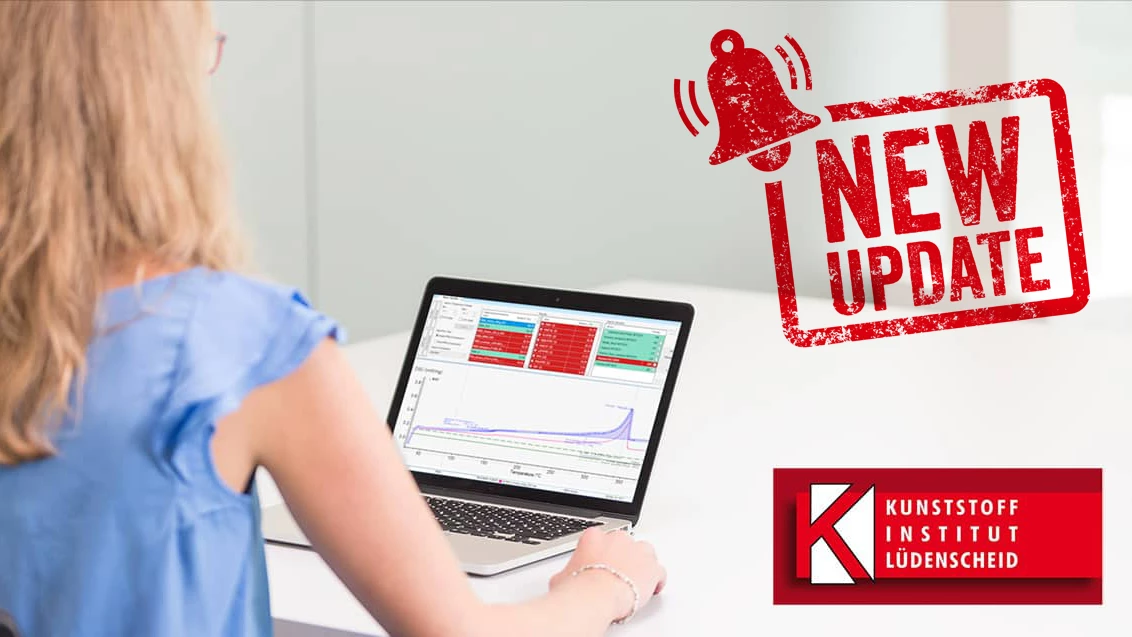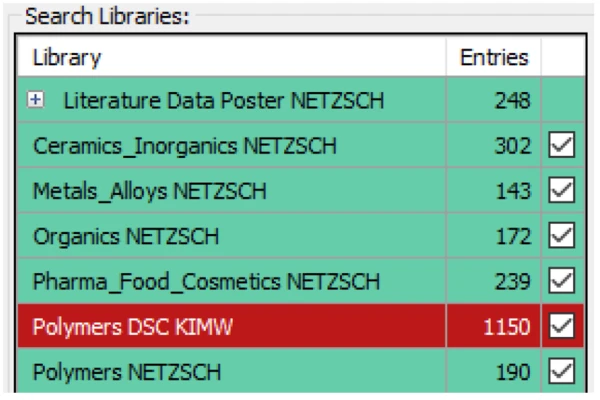
01.08.2022 by Aileen Sammler
Success with Smart Data: The KIMW Database – Now with Extended Content
Getting the most information out of the thermal analysis measurements is often difficult as in literature only single values and no complete thermograms are available. In cooperation with the Kunststoff-Institut Lüdenscheid, NETZSCH offers a polymer database for DSC analysis. This huge database helps identify unknown polymers and comes with extended content now.
In cooperation with the Kunststoff-Institut Lüdenscheid, NETZSCH offers a polymer database for DSC analysis. This huge database helps identify unknown polymers and comes with extended content now.
Thermal analysis answers many questions in different business divisions of the manufacturing industry. However, getting the most information out of the measurements is often difficult as in literature, only single values and no complete thermograms are available. Polymer databases are common tools to support here: The optional KIMW database for thermal analysis instrumentation is already integrated in the NETZSCH Proteus®® software and facilitates your daily work – now in an updated version.

Why Do We Need a Polymer Database?
For example, for incoming goods inspection, it is important to know if a material batch is suitable to produce good parts. In reverse engineering, questions arise about why a competitor can offer similar parts at cheaper prices. Once a part fails, it is necessary to detect if there are any impurities in the material or if the production parameters have been set appropriately. Databased evaluations of results have been common for many methods like FT-IR or GC-MS for a long time. In literature, only single values but no complete thermograms are available, which are necessary to gain complete information about a material. Additionally, mathematical comparison of complete curves has not been possible before the digitalization of thermograms and tables.
The integration of the extensive database of the Kunststoff-Institut Lüdenscheid into the Proteus®® software Identify for identification of curves makes polymer applications considerably easier for the DSC user. Together with the automatic, user-independent evaluation of the DSC measurements by means of AutoEvaluation, faster assignment and more meaningful interpretation of the measurement results are possible.

Shortly Explained: What is Identify?
In the field of thermal analysis, Identify is the only software of its kind (beginning with Proteus®® version 7.1; applicable to DSC, TGA, DIL, TMA and Specific Heat Capacity (cp) curves).
Via database comparisons, it only takes Identify a second to recognize and classify materials. With a single click, experimental curves – even ones that are not yet evaluated – can thus be checked for agreement with stored individual curves, literature data or statistical classes. The NETZSCH libraries supplied include about 1,300 entries from the application fields of polymers, organics, food, pharma, metals/alloys, ceramics and inorganics, as well as the chemical elements. When using Identify, a hit list is generated, which is sorted according to the similarity with the input curve. The various hits on the list can be integrated into the evaluation graphs with a single mouse click. For comparison purposes, any measurement curves can even be superimposed onto each other – even those of differing types.
New Version of the Optional KIMW Database for Identify
NETZSCH has further expanded the contents of the optional “KIMW database” software extension for Identify within Proteus®® analysis: The latest version, 1.4, now contains 1,150 DSC curves for 1,150 different, commercially available polymers. The database entries are grouped into 169 polymer types, which are reflected by Identify classes. Customers already working with the KIMW database versions 1.0/1.1/1.2/1.3 can, of course, order an update to version 1.4 at a special discount). The KIMW database software extension and the update to version 1.4 are both limited to Proteus®® versions 8.0x and higher.

Learn more about KIMW and visit our website:
Software Extension: KIMW Database – Landingpages – NETZSCH Analyzing & Testing
Watch also:
How Proteus® can make your lab work more efficient. on Vimeo:
Read more blog articles related to KIMW database:
“KIMW” • NETZSCH – the Thermal Analysis Blog (ta-NETZSCH.com)
“Smart Thermal Analysis” • NETZSCH – the Thermal Analysis Blog (ta-NETZSCH.com)